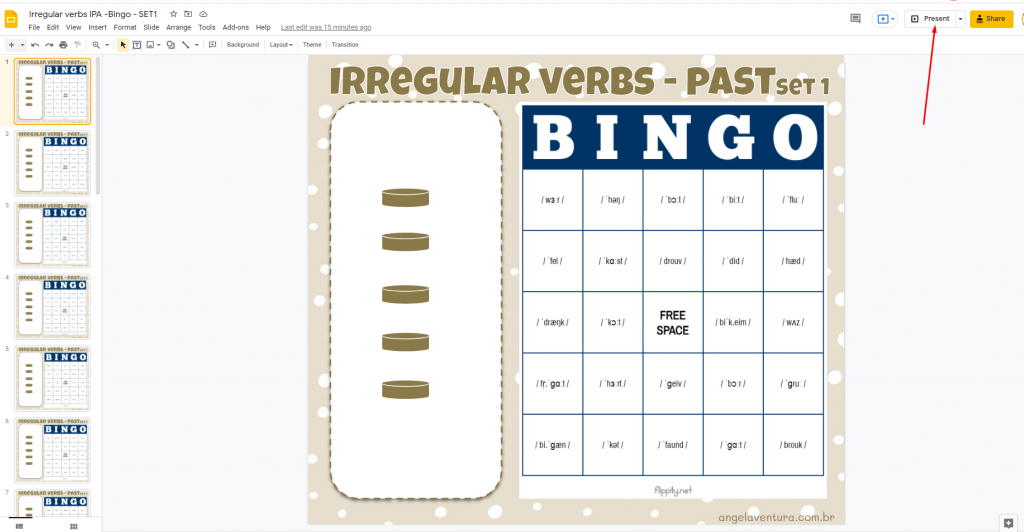Irregular verbs bingo - free interactive cards
Irregular verbs bingo – free interactive cards
This irregular verbs bingo is an activity I designed for my adult students to help them memorize the verbs and pronunciation in a fun way. To add some challenge, the cards are all in phonetic transcription.
Objective:
Students will memorize the most common irregular verbs and their pronunciation, besides getting familiar with phonetic transcriptions.
Attention: Your students should have some familiarity with the irregular verbs in the past and, at least, have seen the IPA before playing this game.
Instructions:
1 – Share the file with the students with permission to edit (as in the image bellow)

They need to open the slides in edition mode (do not select “present”)

2- Each student chooses one bingo card (there are 20 different cards)
3- The teacher says a verb in the present tense. You can use the spinner wheel or just choose a verb from the list linked at end of this page.
4- Students identify the past form of the verb using the IPA (International Phonetic Alphabet) transcription in the cards. Using the bingo chips, they mark the verb.
bingo chips, marker, coin
5 – The winner is the one that marks five spaces in the card as in the traditional bingo.
6 – to reuse the cards, you will have to reorganize the bingo chips. To do it very easily and quickly, follow this steps before you play the game for the first time
- file > history version > name current version
- I suggest you name this version: SAMPLE or TEACHER’s VERSION
- After you play the games with your students:
- file> history version > see the version history
- Select the version you named.
- Restore it.
Now you have all the cards and chips/markers organized. Ready to play again.
Download the cards and instructions
If you want more ideas how to use bingo as a teaching tool, this post might be interesting to you.
